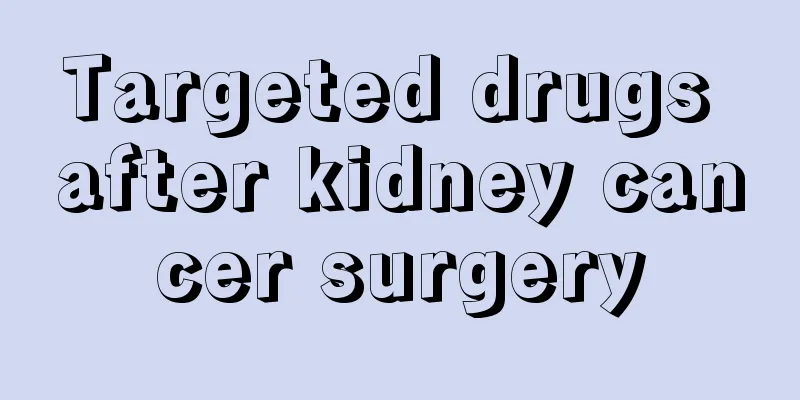Targeted drugs after kidney cancer surgery

|
Kidney cancer, also known as renal cell carcinoma (RCC), accounts for about 2% of all tumors in the body and 90% of renal malignant tumors, of which 85% are clear cell carcinomas. The incidence of kidney cancer is increasing at a rate of 2% per year, and approximately 208,000 people are diagnosed with kidney cancer each year worldwide. Most kidney cancer patients are treated with surgery, but more than 50% of patients have metastasis or recurrence after surgery at the time of diagnosis. In 2005, the number of deaths from metastatic renal cell carcinoma (mRCC) in the United States exceeded 12,000. The average survival time of patients with metastatic renal cell carcinoma is 13 months. Systemic treatments have a very limited role in progressive renal cell carcinoma. Renal cell carcinoma is extremely insensitive to chemotherapy. Immunotherapy based on IL-2 or interferon has a certain activity against mRCC, but its total clinical benefit is less than 10%, and it will also produce a large toxic effect. Therefore, it is urgent to develop new drugs that are effective and tolerable for advanced renal cell carcinoma. Molecular biological research on renal cell carcinoma has given us a further understanding of the occurrence and development mechanism of renal cell carcinoma, such as the upregulation of tumor angiogenesis factors such as angiogenic factor (VEGF) and platelet-derived growth factor (PDGF). These factors are closely related to the activation of the hypoxia response pathway caused by the mutation of the VHL (Von-Hippel-Lindau) tumor suppressor gene, as well as the activation of the epidermal growth factor (EGFR) and mTOR signaling pathways, which are closely related to the survival and proliferation of tumor cells, among which the role of hypoxia-inducible factor (HIF) is particularly prominent. A series of molecular targeted drugs have been developed targeting these molecular pathways. This article intends to review these drugs. |
<<: Treatment methods for advanced kidney cancer
>>: Three major methods of TCM treatment of kidney cancer
Recommend
The mid-stage symptoms of rectal cancer are very obvious
The mid-stage of rectal cancer refers to the peri...
Is it suitable to get pregnant if there is a cancer patient in the family
Is it suitable to get pregnant if there is a canc...
What to do with bad breath? 9 tips to help you get rid of bad breath
Bad breath, which annoys others and embarrasses y...
How is gastric cancer staged? It is divided into these five stages
Gastric cancer is divided into five stages: T0, T...
Common early symptoms of bone cancer
Bone cancer is divided into primary and secondary...
What causes throat cancer?
The occurrence of laryngeal cancer is related to ...
What are the best treatments for burns
Burns are quite common in our daily life, but we ...
How to remove pomegranate stains
Pomegranate tastes sweet and sour, but sometimes ...
How can we sober up?
Whenever I get together with friends, I can't...
Sky phobia
There are many types of fears, and different peop...
Is stye contagious?
Although stye will make patients feel very uncomf...
How to prevent cervical cancer
So far, the cause of cervical cancer has not been...
Effects of tea polyphenols in tea
Tea ceremony is one of the traditional Chinese cu...
Why do I have cold feet due to low blood calcium?
It is not uncommon for patients with hypocalcemia...
What are the main symptoms of aortic dissection
Aortic dissection is a relatively serious arteria...









